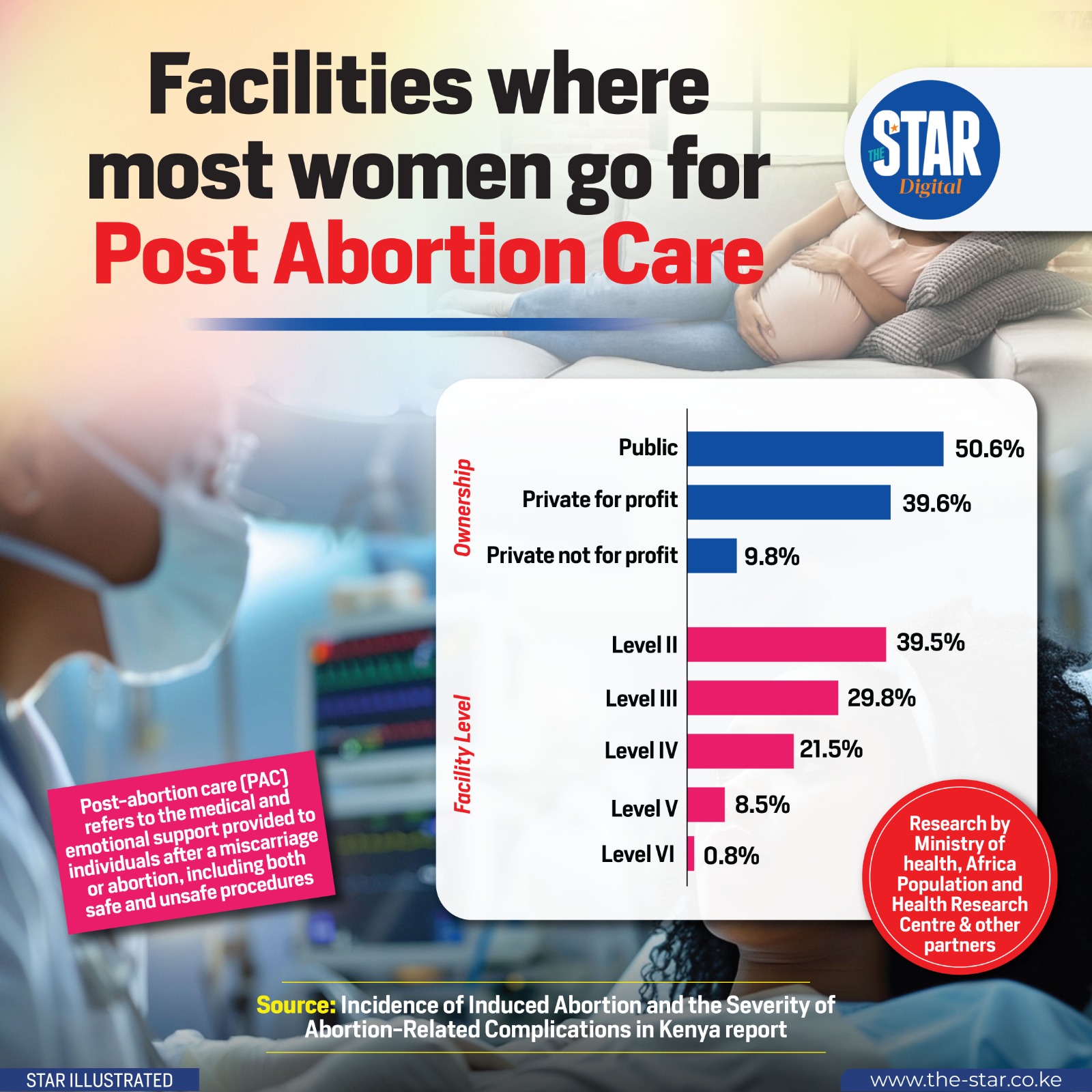 Facilities where most women go for post abortion care.
Facilities where most women go for post abortion care.
In that regard, the KHRC has called on the government to allocate adequate resources, especially on the reproductive health services and maternal health care, during the next financial year to prevent unsafe abortion among women and girls.
The lobby called on the government to align
with the Abuja Declaration which stated that the government must
allocate at least 15 per cent of its annual budget to the health sector during budget making process.
They acknowledged that the deviation from the Abuja declaration has subsequently resulted in a lack of adequate sexual and reproductive health services in public hospitals due to low funding.
The call follows the recent study by the Ministry of Health Kenya and the African Population and Health Research Centre that has showed that an estimated 792,694 induced abortions occurred in Kenya in 2023.
The study also revealed that more than half of all women with post-abortion complications received treatment in public health facilities.
However, the capacity of health facilities to provide basic and comprehensive post-abortion care was low, with only 18.3 per cent of primary health facilities offering all the elements of basic post-termination care and 24.1 per cent of referral-level facilities providing the full package of comprehensive post-abortion care.
These statistics align with research findings indicating that 355 women die each year for every 100,000 live births due to pregnancy-related complications. Additionally, five women were reported to have died from abortion-related complications, while eight others remained in a coma.
The report further disclosed that 16.6 per cent of the cases were deemed potentially life-threatening, outcomes that could have been prevented with timely and adequate medical intervention.
KHRC further noted that several key studies and reports have documented the link between inadequate government financing for sexual and reproductive health services and the prevalence of unsafe abortion.













